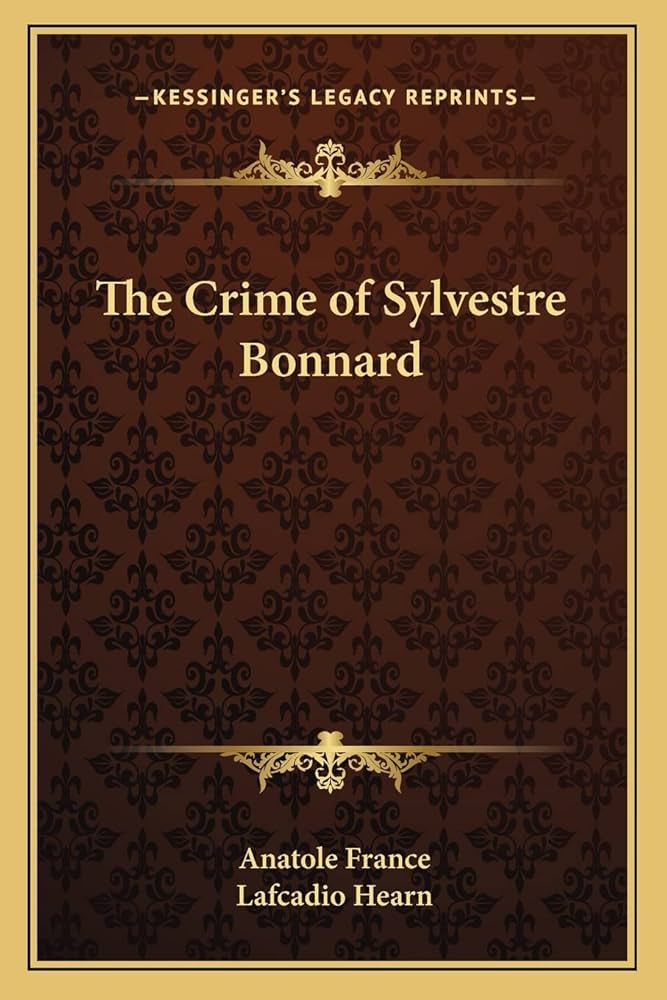Chapter I — The Crime of Sylvestre Bonnard
byChapter I begins with Sylvestre Bonnard stepping into the calm embrace of the countryside, its evening air filled with the scent of grass and baked earth still warm from the day. His journey, though outwardly simple, carries the weight of many internal reflections. As the train pulls away, he walks alone with a bag packed by his faithful housekeeper, filled more with routine than need. The path he treads is familiar, yet newly painted with nostalgia. Memories bloom with each step—his old schoolmaster’s scolding voice, the scent of his mother’s shawl, and above all, the ache tied to Clementine’s name. These thoughts do not overwhelm him but settle like soft dust, part of the life he’s learned to carry. The solitude suits him, as he has lived mostly with his books and memories, seeking order in printed words and comfort in knowledge passed down across centuries.
Along the road, Bonnard reflects not on regret, but on the patterns of life and the quiet spaces between them. He imagines what it would have been like to have a child, not just for the joy of fatherhood, but for the idea that someone might gaze at stars after him. There’s something comforting in the thought of continuity, of leaving behind not just work but wonder. His musings are cut short by the arrival of Monsieur Paul de Gabry, a figure as full of vigor as Bonnard is of contemplation. Their meeting feels abrupt, a clashing of two worlds—one rooted in scholarship, the other in sport and leisure. Paul’s respect for Bonnard is evident, but so is his lack of interest in the literary treasure housed at the chateau. Their conversation, though courteous, reveals the gap between generations, between what is treasured and what is endured.
The chateau they approach is wrapped in shadow, its silhouette evoking both grandeur and melancholy. Paul speaks lightly of the house’s other inhabitants and mentions Jeanne, a mysterious young woman with a past that stirs curiosity rather than clarity. Bonnard senses something layered beneath Paul’s casual tone, but he chooses not to probe. He prefers discovery through observation, letting moments reveal their truths in time. The chateau’s air is thick with stories waiting to be unearthed, and though he arrived to catalog manuscripts, Bonnard begins to suspect he will uncover more than old texts. Something in Paul’s voice, perhaps unintended, hints at stories stitched into the fabric of the place—ones that books cannot contain. As they draw closer, the night feels less like a conclusion and more like a threshold.
When they arrive, the chateau is silent but not empty, its rooms holding echoes that Bonnard cannot yet interpret. He is shown to his quarters, and as he unpacks, his eyes drift toward the shelves lining the walls. Though his mind has traveled far today, the sight of old volumes brings a steadying peace. He fingers the spines gently, like greeting friends not seen in years. The world outside those bindings may shift, but within their pages lies a constancy that has always given him strength. Yet even here, in the quiet glow of lamp light, thoughts of Clementine rise again, not in pain, but in the tender acknowledgment of a life once imagined and never lived. He smiles faintly, accepting the warmth that memory still brings despite the years.
Jeanne’s presence, though yet unmet, lingers in the background like a character in a book he’s just begun. Her name, carried lightly on Paul’s tongue, seems to echo through the halls. Bonnard does not yet understand the part she will play, only that her story is already entwined with the chateau’s and soon with his. That night, as he lies awake, the ticking of a distant clock feels not like a reminder of time lost, but of something waiting. This journey, begun with the intention to serve knowledge, may also become a journey of the heart. Not romantic in the way youth dreams, but redemptive in the way age quietly hopes. And in that stillness, Bonnard lets go of regret, opening himself not to what might have been—but to what might still be.


